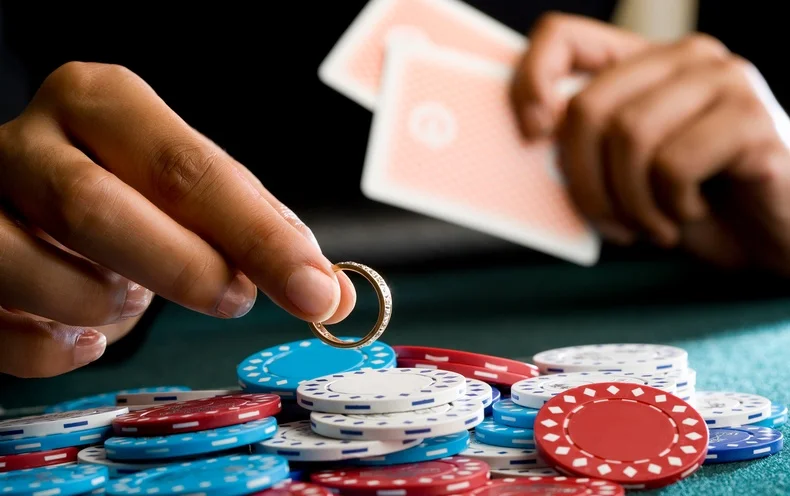
Gambling addiction can result in financial issues and affect relationships with family and friends. A person seeking treatment for their gambling habit should explore therapy or support groups as an avenue towards recovery; medications like antidepressants or mood stabilizers may also be effective treatments.
Treatment for gambling addiction is an integral step toward ending its cycle. People can access support either online, through their insurance provider or directly by calling treatment facilities.
Table of Contents
ToggleLoss of control
Addiction to gambling can have devastating repercussions for your finances, relationships and work life – as well as physical health concerns. Recognizing you have an issue and seeking treatment are essential steps. A therapist can assist in treating both gambling issues as well as stress related emotional concerns.
There is no medication to treat gambling disorder; however, psychotherapy may offer relief. Cognitive-behavioral therapy (CBT) may help change unhealthy gambling behaviors and thoughts such as rationalizations or false beliefs and also show you how to combat urges to gamble.
Gamblers need to experience pain before becoming motivated to change. You should not provide cover-up, make excuses or shield them from the natural consequences of their behavior.
Guilt
Acknowledging you have a gambling issue takes courage and strength. Admitting that gambling costs money or harms relationships isn’t always easy, but if you’re serious about curbing it you should seek help through therapy or mental health professionals. Cognitive-behavioral therapy may help change unhealthy gambling habits while helping manage urges; additionally it teaches how to cope with financial, work, or relationship problems caused by compulsive gambling.
Keep in mind that gambling addicts only gain motivation for change through experiencing the natural consequences of their actions. Avoid helping cover up debts, give money or make excuses for their behavior; as well as protecting them from experiencing their addiction.
Decreased self-esteem
Gambling addiction can have serious repercussions for one’s self-esteem and relationships with friends and family, possibly including lost jobs or educational opportunities, becoming irritable or depressed when not gambling, as well as increased stress when not engaging in this behavior.
Becoming aware of the signs of gambling problems is vital in order to support loved ones who may be struggling. If you think someone you care about might be dealing with a gambling addiction, speaking with nonjudgmental individuals might help; try finding people who will listen attentively while providing sound advice can also be useful.
If you or someone close to you is struggling with gambling addiction, seek professional assistance immediately. Priory offers a free online assessment where therapists with expertise in treating gambling addiction can be seen for free.
Relationships with family and friends
Gambling addictions can put considerable strain on families. Gambling addiction can result in emotional, financial and physical harm to its participants and those close to them. Secretive behaviors that conceal money, lie to family and friends or even steal in order to fund the habit can create trust issues between family members that leads to irreparable family division. Seeking guidance from a counsellor is the ideal solution when confronted by such challenges.
Keep in mind that you cannot force someone with a gambling problem to acknowledge its harmfulness; however, education about the issue and encouraging treatment are viable approaches. Furthermore, boundaries can help safeguard family finances. Cognitive therapy may also provide important therapeutic support – there are various therapeutic modalities available specifically tailored towards gambling disorder sufferers.
Financial problems
Financial problems are one of the primary consequences of gambling addiction. People addicted to gambling tend to accrue a considerable debt and may even lose their homes as a result of their addiction, leading them into engaging in illegal activities such as theft and fraud in order to fund their habit – this can leave a criminal record and serious legal ramifications behind them.
Gambling-related debt problems increase the likelihood of other psychosocial harms, such as psychological distress and substance use, which may precede gambling disorders [30]. Therefore, more comprehensive approaches must be used when measuring debt problems associated with gambling-related harms.
If you’re having difficulty managing your finances, seek assistance from someone trusted. Limit access to cash and visits to clubs, pubs, TABs and casinos as much as possible; pay bills via direct debit or cheque on pay day when possible and ensure essentials such as rent are covered in advance.
RELATED ARTICLES
Recent Posts
 The Impact of Volatility on No Deposit Casino Game OutcomesFebruary 12, 2025
The Impact of Volatility on No Deposit Casino Game OutcomesFebruary 12, 2025 The Benefits of Playing at No Deposit CasinosJanuary 9, 2025
The Benefits of Playing at No Deposit CasinosJanuary 9, 2025 How to Choose a Reputable No Deposit Casino – A Guide to Research and Due DiligenceDecember 6, 2024
How to Choose a Reputable No Deposit Casino – A Guide to Research and Due DiligenceDecember 6, 2024 Measuring the Effectiveness of Casino Operations ManagementNovember 8, 2024
Measuring the Effectiveness of Casino Operations ManagementNovember 8, 2024 Casino Tourism Impact on Local Economy.October 9, 2024
Casino Tourism Impact on Local Economy.October 9, 2024





